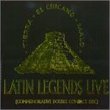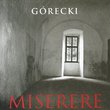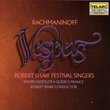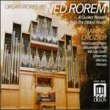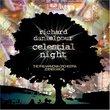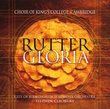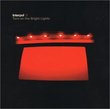| All Artists: Palestrina, Monteverdi, Munrow Title: Missa Papae Marcelli / Vespers Excerpts Members Wishing: 0 Total Copies: 0 Label: Angel Records Release Date: 2/14/1995 Genre: Classical Styles: Opera & Classical Vocal, Historical Periods, Baroque (c.1600-1750) Number of Discs: 1 SwapaCD Credits: 1 UPC: 724356533929 |
Search - Palestrina, Monteverdi, Munrow :: Missa Papae Marcelli / Vespers Excerpts
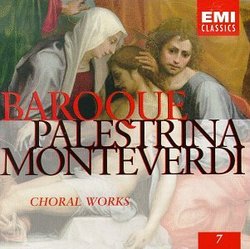 | Palestrina, Monteverdi, Munrow Missa Papae Marcelli / Vespers Excerpts Genre: Classical
|
Larger Image |
CD DetailsSimilar CDs
Similarly Requested CDs
|
CD ReviewsFOR ITSELF, BY ITSELF DAVID BRYSON | Glossop Derbyshire England | 01/22/2004 (5 out of 5 stars) "It is not my intention to review this disc in its entirety. The Monteverdi Vespers are widely recorded, and extensive commentary is to be had on the range of available accounts. Whatever anyone's view on the relative merits of those, this disc needs to be highlighted purely for the sake of Willcocks's simply wonderful, transcendental, performance of the Missa Papae Marcelli with the choir of King's Cambridge, a performance no longer available as originally issued with the same composer's Missa Brevis.It would be a paradox to say that the Missa Papae Marcelli is the most characteristic of Palestrina's masses because it is completely unique in sound even among his compositions that I know. What the phrase might hopefully convey is that it exemplifies his style not only at its greatest but in the ways in which it least resembles the work of Lassus or Victoria. Palestrina is typically less emotional than Lassus and less dark in tone than Victoria. Even so you will find more overt `expression' in his Missa Hodie Christus Natus Est, or even in his Missa Brevis, than you will find in the great Marcellus Mass, and you will find more intensity in the performances of that by Summerly and others than you will find here from Willcocks. If ever a great piece of music was above it all, it is surely this work, and if ever a performance captured its unique other-world serenity it is this performance from Willcocks and his colleagues.The reign of Pope Marcellus II was shorter than that of John Paul I, only some 3 weeks. However in that time he addressed the pontifical choir to the effect that he found their performances cursory and below the standard required for the divine liturgy. Palestrina, appointed Master of the Julian Chapel Choir a few years previously by Julius III, must have taken this strongly to heart, particularly since the Pope's complaint that the words were often indistinct was implicitly as much a criticism of the music itself as of the way it was sung. The Pope did not live to say much else about the issue, and Palestrina was among those dismissed shortly afterwards by the new pontiff Paul IV on grounds of being married, a disqualifier that had been allowed to lapse in practice. However when he succeeded the younger Lassus as head of music at the Basilica of St John Lateran he still seemed to be bearing the lesson in mind, because in the Marcellus Mass he takes particular care to have the vocal entries mainly to the same words. He soon realised that this constraint, whatever it did for distinctness, would soon be the death of polyphony and he relaxed it from then on, but in the meantime it helps the effect of utter and transcendental serenity that marks this great work out. The recording of the 6-part polyphony is clear and has quite enough `presence'as far as I am concerned, although obviously one has heard better in recent years. I make no apology for ignoring Monteverdi's great Vespers here, because this is simply not the place to talk about them - or if it is, it is not the place to talk about the Missa Papae Marcelli. I have heard enough about the economic plight of the classical music industry these days to be only too grateful to Angel and other budget labels for what they are continuing to make available to us. No disrespect whatsoever is intended to Monteverdi when I say that I no more feel like discussing his Vespers in this context than I feel like discussing Die Fledermaus. For keeping this great thing on issue the trumpets must already have sounded for them all on the other side." This Disc Is a Must Have for Lovers of Choral Music! DAVID BRYSON | 12/13/1998 (5 out of 5 stars) "Who cares if they lump Palestrina in as a Baroque composer as long as they reissue this great performance of his "Pope Marcellus" Mass? That is what they have done, and I'm grateful that they have. For those who love a pure, clear approach to Palestrina by a full ensemble, this disc is a must. The Willcocks interpretation of this work is absolutely haunting. The men and boys are in great voice and the clarity and delicacy of the performance is enough to evoke chills and goose bumps! Also featured on the disc are four Monteverdi works from his vesper settings. Three are performed by Kings College under Philip Ledger and the last, the Magnificat setting from the "Vespro della Beata Vergine" is an authentic stylistic performance from David Munrow, who sadly left us too little with which to remember his pioneering work in the performance of early music. This is a fine diec. The remastering is excellently done and the performances are all of a very high calibre. The Palestrina, alone, would make the disc a bargain!"
|

 Track Listings (11) - Disc #1
Track Listings (11) - Disc #1